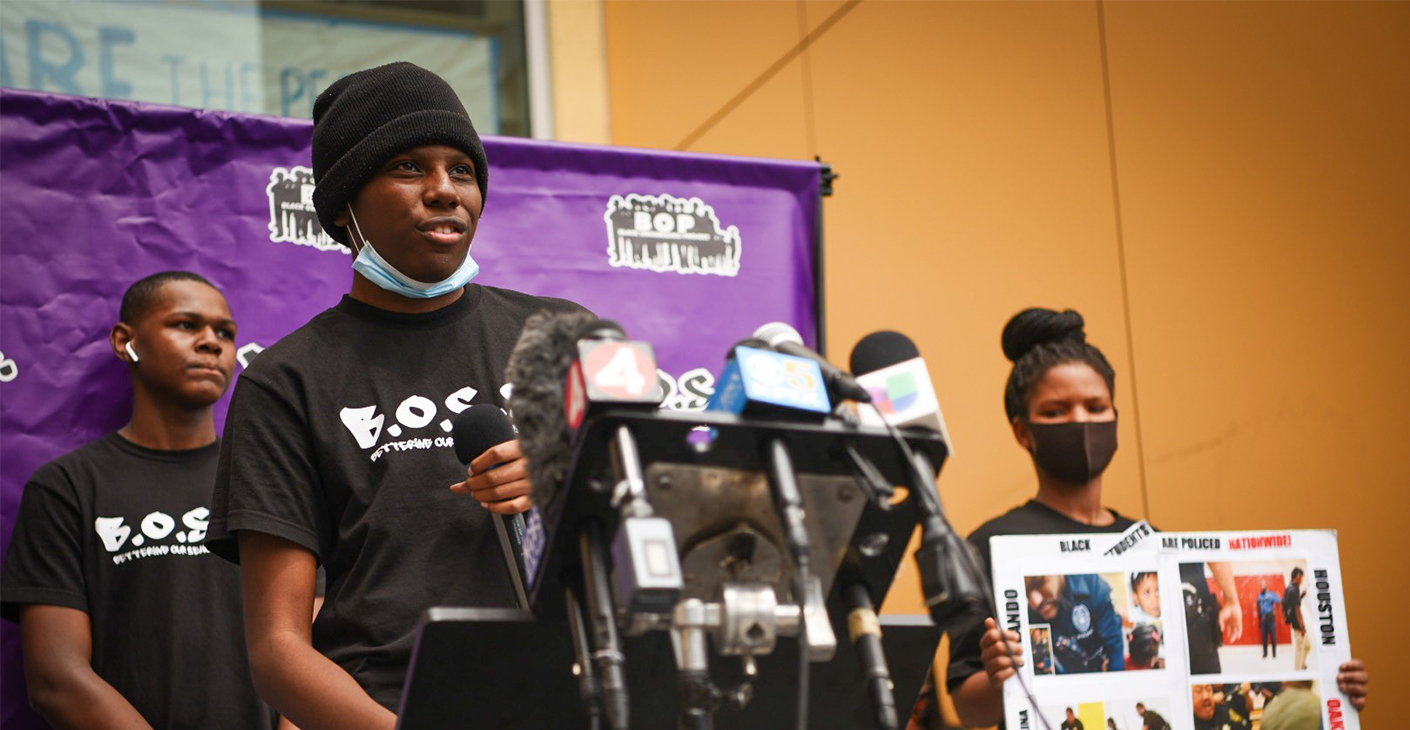Contact: Ling Woo Liu, lliu[at] sff.org
SAN FRANCISCO, CA — The San Francisco Foundation announces a two-year $3.4 million Bese Sake Initiative to respond to the needs of Black-serving nonprofit organizations in the Bay Area. The initiative is aimed at strengthening the region’s ecosystem of Black community organizers in the wake of a pandemic that has exposed deep systemic inequities in the Bay Area and across the country.
Today’s announcement stems from a decision made last December, by the foundation’s Board of Trustees in response to the racial reckoning sparked by the murder of George Floyd, Breonna Taylor, and many others. The Board increased SFF’s grantmaking budget by $10 million over the next five years to support organizations serving people of color focused on organizing and advocacy, with an initial focus on the Black community. In February, SFF began allocating this funding by contributing $1 million to the California Black Freedom Fund, a $100 million philanthropic initiative dedicated to Black power-building and organizing in California.
The new $3.4 million initiative continues the foundation’s support for Black-serving organizations in the region. Planning began in the summer of 2020, when SFF began meeting with Bay Area Black-serving nonprofits focused on organizing and advocacy to learn about the challenges they are facing, and how the foundation could help address those challenges. The nonprofits described their need for better infrastructure and capacity, technology and communications, as well as ways to collaborate and heal with similar organizations.
General operating grants will support 18 Black-serving organizations in the Bay Area with a focus on capacity building, organizing, policy, and advocacy work. Additional organizations will receive stipends to enable their staff to take part in the initiative’s community convenings.
The initiative will be led in partnership with the Oakland-based Brotherhood of Elders Network, which advances the health and wellness of Black families and communities. Additional advisors include the ASCEND network and the Empowerment Initiative, as well as consultants who will provide direct support to individual organizations. A community advisory group is also being developed.
Philanthropy has long failed to provide sufficient funding to Black-serving nonprofits. And there is ample evidence to demonstrate this stark lack of funding. A 2020 study by the National Committee for Responsive Philanthropy found that only 1 percent of grants — from 25 community foundations across the country — was designated specifically for Black communities. This level of funding was in contrast to the fact that for the 25 cities where the foundations are based, Black residents comprise an average of 15 percent of the population.
“Last year, in the midst of the pandemic and the racial reckoning, we asked ourselves how we could do everything in our power to support Black communities, and communities of color,” says Retha Robinson, the foundation’s Koshland Program Director, who helped design the new initiative. “We call on other funders to apply a racial equity framework to their grantmaking and invest what’s needed so that Black communities can thrive — both now and in the future.”
Bese Saka Capacity Building Initiative for Black-serving Organizations
- Anti Police-Terror Project
- Black Women Organizing for Political Action (B.W.O.P.A), a project of Training Institute for Learning Enrichment
- Community Housing Development Corporation of North Richmond
- The East Oakland Collective, a project of Social Good Fund
- The Hidden Genius Project
- Central City Hospitality House
- Live Free, a project of Faith in Action
- Oakland Frontline Healers, a project of Building Opportunities for Self- Sufficiency
- The Oakland REACH
- Priority Africa Network, a project of National Network for Immigrant and Refugee Rights
- Safe Return Project, a project of Social Good Fund
- SF Black Wall Street Foundation
- Black Organizing Project
- Richmond Neighborhood and Housing Services
- Performing Stars of Marin
- Black LGBTQIA+ Migrant Project, a project of the Transgender Law Center
- Young Community Developers
Bese Saka, a symbol for the cola nut, has multiple meanings in West African culture. It represents affluence, trade and commerce, while also symbolizing plenty and togetherness. The symbol belonged to the Asante (or Ashanti) peoples, who would print them on cloth, as well as pottery and metalwork. Learn more about the Bese Saka Initiative.


